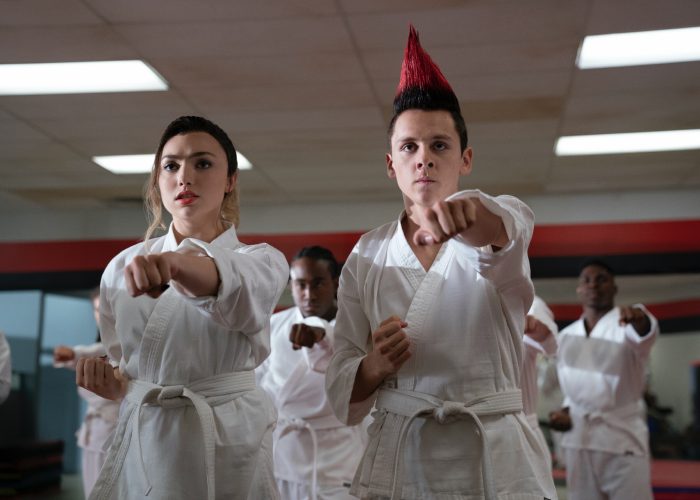On a personal note, my grandfather was Captain Taro Suzuki of the 100th Battalion. Like so many of his comrades, he was wounded in action. His right hand was permanently crippled, and he still had so much shrapnel in his body that he couldnt pass through a metal detector. I inherited his Purple Heart which I cherish like the LaRussos treasure Miyagis medal. I heard his war stories growing up. The Karate Kid was the first time I saw his battalion represented in a movie. Miyagis drunken scene is still intensely moving and personal for me.
Morita died in 2005 so Miyagi only appears in Cobra Kai flashbacks culled from the original movies. Although the series goes to great lengths to honor him, the lack of any Asian leads does give credence to those accusations of cultural appropriation and whitewashing. The thing is, much of the martial arts scene in the Western world has already been, for lack of a better term, whitewashed. And one characters journey (and the real life figure hes based on), helps illustrate martial arts approach to worldwide growth.
In Cobra Kai season 3, Young Kreeses journey mirrors the real-life experience of the action choreographer of the original films, Master Pat E. Johnson. Kreese learned martial arts from his Caucasian commander, Captain Turner (Terry Serpico), who learned it while serving in Korea from Master Kim Sun-Yung. It was actually Korean Tang Soo Do, not Karate. Johnson learned Tang Soo Do from Master Kang Lo Hee while stationed as a U.S. Army chaplain in Korea. This is how Tang Soo Do spread westward. Many of the leading American martial arts proponents are not Asian.
Today, martial arts belong to the world. For generations, Asian traditional martial arts have striven to propagate themselves globally. Judo and Taekwondo have become Olympic events and Karate was going to be added in the 2020 Tokyo Olympics. Its still on track when the games are rescheduled this summer. International organizations are found in every major martial arts style now and they are continuing to spread. So, its not entirely fair to begrudge the diasporas non-inclusivity.
While The Karate Kid brought martial arts to the San Fernando Valley, other films and shows have spread the martial diaspora globally. The Blaxploitation genre glorified martial arts with its own unique take on the culture. Netflixs Seis Manos is a Kung Fu based adult animated series set in Mexico. Although it does have a leading Asian role in Chiu (Vic Chao), is this cultural appropriation? Indian movie stars like Tiger Shroff and Akshay Kumar have brought martial arts to Bollywood in force with films like Commando, Baaghi, and Khiladi. Thats not Asian cultural appropriation, even though India is a different region of Asia where we dont typically associate martial arts.read more
Cobra Kai and the Debate Around Cultural Appropriation


